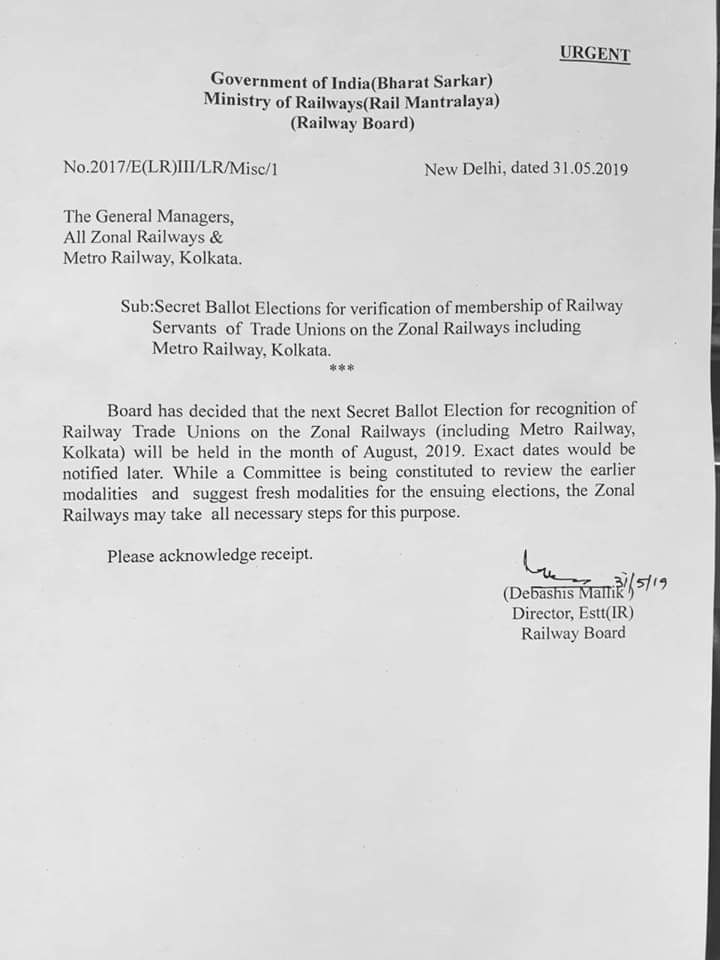Dr K. Kasturirangan Committee submits the Draft National Education Policy
Press Information Bureau
Government of India
Ministry of Human Resource Development
Dr K. Kasturirangan Committee submits the Draft National Education Policy to the Union HRD Minister
The Committee led by the Chairman Dr. Kasturirangan submitted the Draft National Educational Policy to the Union Human Resource Development Minister, Shri Ramesh Pokhriyal ‘Nishank’ and Minister of State for HRD, Shri Sanjay Shamrao Dhotre in New Delhi today in the presence of Shri R. Subrahmanyam, Secretary Department of Higher Education and Smt. Rina Ray, Secretary Department of School Education & Literacy and other senior officials of the Ministry.
The Government of India had initiated the process of formulating a New Education Policy to meet the changing dynamics of the requirements of the population with regard to quality education, innovation and research, aiming to make India a knowledge superpower by equipping its students with the necessary skills and knowledge and to eliminate the shortage of manpower in science, technology, academics and industry. The extant National Policy on Education, 1986 modified in 1992 required changes to meet the contemporary and futuristic needs of our large youth population.
For this, the MHRD initiated an unprecedented collaborative, multi-stakeholder, multi-pronged, bottom- up people-centric, inclusive, participatory consultation process. The extensive consultations undertaken across multiple levels of online, expert and thematic, and from the grassroots ranging from Village, Block, Urban Local bodies, District, State, Zonal and the National level, provided an opportunity to every citizen to engage in this massive exercise. Several in-person and in-depth deliberations across a wide spectrum of stakeholders were held. Subsequently, a ‘Committee for Evolution of the New Education Policy’ under the Chairmanship of Late Shri T.S.R. Subramanian, Former Cabinet Secretary, was constituted, which submitted its report in May, 2016. Based on this report, the Ministry prepared ‘Some Inputs for the Draft National Education Policy, 2016’.
The Committee had the onerous task of analysing and examining a humungous volume of suggestions, inputs, reports, and outcome documents that preceded its own efforts. The underlying spirit that dictated the Committee’s own course of crafting this significant document was primarily to bring out a vision document which will hold the test of time for at least another 20 years. The Draft National Education Policy, 2019 is built on the foundational pillars of Access, Equity, Quality, Affordability and Accountability. The Committee has proposed to rename MHRD as Ministry of Education (MoE).
In School Education, a major reconfiguration of curricular and pedagogical structure with Early Childhood Care and Education (ECCE) as an integral part of school education is proposed. The Committee also recommends Extension of Right to Education Act 2009 to cover children of ages 3 to 18. A 5+3+3+4 curricular and pedagogical structure based on cognitive and socio-emotional developmental stages of children: Foundational Stage (age 3-8 yrs): 3 years of pre-primary plus Grades 1-2; Preparatory Stage (8-11 years): Grades 3-5; Middle Stage (11-14 years): Grades 6-8; and Secondary Stage (14-18 years): Grades 9-12. Schools will be re-organized into school complexes. It also seeks to reduce content load in school education curriculum. There will be no hard separation of learning areas in terms of curricular, co-curricular or extra- curricular areas and all subjects, including arts, music, crafts, sports, yoga, community service, etc. will be curricular. It promotes active pedagogy that will focus on the development of core capacities: and life skills, including 21st century skills.
The Committee proposes for massive transformation in Teacher Education by shutting down sub-standard teacher education institutions and moving all teacher preparation/education programmes into large multidisciplinary universities/colleges. The 4-year integrated stage-specific B.Ed. programme will eventually be the minimum degree qualification for teachers.
In higher education, a restructuring of higher education institutions with three types of higher education institutions is proposed- Type 1: Focused on world-class research and high quality teaching; Type 2: Focused on high quality teaching across disciplines with significant contribution to research; Type 3: High quality teaching focused on undergraduate education. This will be driven by two Missions -Mission Nalanda & Mission Takshashila. There will be re-structuring of Undergraduate programs (e.g. BSc, BA, BCom, BVoc) of 3 or 4 years duration and having multiple exit and entry options.
A new apex body Rashtriya Shiksha Ayog is proposed to enable a holistic and integrated implementation of all educational initiatives and programmatic interventions, and to coordinate efforts between the Centre and States. The National Research Foundation, an apex body is proposed for creating a strong research culture and building research capacity across higher education.
The four functions of Standard setting, Funding, Accreditation and Regulation to be separated and conducted by independent bodies: National Higher Education Regulatory Authority as the only regulator for all higher education including professional education; Creation of accreditation eco-system led by revamped NAAC; Professional Standard Setting Bodies for each area of professional education and UGC to transform to Higher Education Grants Commission (HEGC). The private and public institutions will be treated on par and education will remain a ‘not for profit’ activity.
Several new policy initiatives for promoting internationalization of higher education, strengthening quality open and distance learning, technology integration at all levels of education, adult and lifelong learning and initiatives to enhance participation of under-represented groups, and eliminate gender, social category and regional gaps in education outcomes are recommended. Promotion of Indian and Classical Languages and setting up three new National Institutes for Pali, Persian and Prakrit and an Indian Institute of Translation and Interpretation (IITI) has been recommended. The path breaking reforms recommended will bring about a paradigm shift by equipping our students, teachers and educational institutions with the right competencies and capabilities and also create an enabling and reinvigorated educational eco-system for a vibrant new India.
The draft NEP (Hindi & English) is given at links below:
English – Click here
Hindi – Click here

